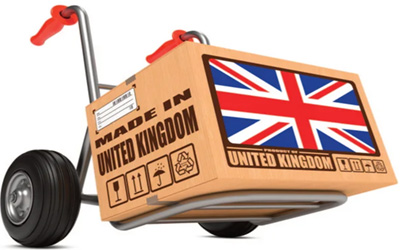Strict Security Measures for European Air Cargo Shipments to the U.S. and Canada
What Shippers Need to Know
The U.S. Transportation Security Administration (TSA) and Transport Canada have recently imposed more stringent air cargo security regulations, which are impacting European and CIS-based shippers. These changes, rolled out at the end of August, are causing operational challenges and generating significant concern within the air cargo industry.
Freight forwarders, in particular, are feeling the pressure, and industry group CLECAT has raised a call for greater collaboration and harmonization of security protocols.
New Security Requirements for Air Cargo Shipments
The updated security measures involve both the TSA’s Air Cargo Advanced Screening (ACAS) program and new directives from Transport Canada. These regulations require air cargo shipments from over 55 countries, primarily in Europe, to be handled only by known shippers or freight forwarders with established business relationships. (stick with SARR Logistics we don’t feel pressure). This move effectively places a ban on non-compliant shipments, disrupting the normal flow of air cargo from affected regions.
Additionally, the U.S. Customs and Border Protection (CBP) has expanded the data elements required for ACAS filings. This is proving to be a major logistical hurdle for shippers, as the additional information must be collected and reported accurately before cargo can be cleared for transport. The lack of a phased rollout has left many scrambling to adapt to the new rules.
 Impact on Air Cargo Operations
Impact on Air Cargo Operations
One of the most immediate consequences of these new requirements has been the decision by Korean Air to impose an embargo on European and CIS cargo bound for the U.S. As of mid-August, Korean Air announced that it would not transport these shipments due to the complexity of adhering to the new TSA regulations. The carrier’s decision highlights the operational difficulties the air cargo sector faces in navigating these sudden changes, which are expected to remain in place until at least November 2024.
The broader air cargo industry is now grappling with the implications of these regulatory shifts. Freight forwarders, who handle a significant portion of international shipments, are particularly affected. These new rules increase the operational burden on these businesses, who now face more stringent requirements to ensure cargo compliance before it can be transported across the Atlantic.
CLECAT’s Response & Calls for Harmonization
CLECAT, the European association representing freight forwarders and logistics service providers, has voiced its concerns about these new regulations. The organisation is calling for better communication between regulatory bodies and the air cargo industry to minimise operational disruptions. CLECAT has emphasised that the abrupt implementation of these rules has left shippers and freight forwarders with little time to prepare, causing a strain on the global supply chain.
To address these issues, CLECAT is advocating for the harmonisation of air cargo security protocols across international markets. One of the association’s key recommendations is the standardisation of Pre-Loading Advance Cargo Information (PLACI) programs, which would streamline the compliance process for operators working with multiple regulatory regimes. By standardising the data requirements for air cargo shipments, CLECAT believes the industry can reduce operational complexity and enhance security without disrupting the flow of goods.
The Importance of Industry Collaboration
As stricter air cargo security measures become the norm, collaboration between industry stakeholders, regulatory authorities, and governments is essential. CLECAT’s call for engagement underscores the need for a balanced approach that protects both security and the efficiency of global trade. The organisation has urged regulators to work more closely with economic operators (EOs) to ensure that future security measures are practical and that they do not impede the industry’s ability to move goods efficiently across borders.
The future of air cargo security will likely involve more stringent requirements, but the key to success lies in how these measures are implemented. By working together, the industry and regulatory bodies can find ways to enhance security while minimising the operational disruptions that have characterised the recent changes.
Steps Air Cargo Operators Can Take to Stay Compliant
 To navigate the new regulatory landscape, shippers and freight forwarders must implement several key strategies:
To navigate the new regulatory landscape, shippers and freight forwarders must implement several key strategies:
Establish Strong Partnerships with Known Shippers:
The recent changes highlight the importance of working with known, trusted shippers, such as SARR Logistics UK. By building and maintaining long-term relationships with compliant partners, freight forwarders can ensure smoother operations and avoid the delays and disruptions caused by non-compliant shipments.Enhance Data Management Capabilities:
With the U.S. Customs and Border Protection (CBP) now requiring additional data elements for the Air Cargo Advanced Screening (ACAS) program, it is critical for operators to invest in robust data management systems. These systems can streamline the collection, validation, and submission of data, minimising the risk of errors that could lead to shipment delays or penalties.Stay Updated on Regulatory Changes:
The fast pace of regulatory developments in the air cargo industry means that shippers and freight forwarders must stay informed about the latest security requirements. Regularly reviewing updates from authorities such as the TSA and Transport Canada, and participating in industry forums, will help operators stay compliant and anticipate potential changes before they are enforced.Invest in Training and Compliance Programs:
Compliance with the new security measures requires thorough knowledge of the regulations and how they apply to day-to-day operations. Shippers and freight forwarders should invest in comprehensive training programs for their staff to ensure everyone understands the requirements and is equipped to meet them efficiently.Collaborate with Industry Associations:
Organizations like CLECAT play a crucial role in advocating for the air cargo industry’s interests. By actively participating in industry associations, shippers and freight forwarders can engage with regulatory bodies, share best practices, and contribute to the development of more balanced and effective security measures.
The Future of Air Cargo Security: A Path Forward
Looking ahead, it is clear that security will remain a top priority for governments and regulatory authorities worldwide. As the global air cargo network becomes more interconnected, the need for comprehensive security measures will only grow. However, the key to successful implementation lies in cooperation. Industry stakeholders must work closely with regulators to ensure that new requirements are not only stringent enough to address security risks but also flexible enough to maintain the fluidity of international trade.
CLECAT’s push for harmonised regulations and streamlined data requirements reflects the broader industry sentiment: efficiency and security can coexist. By establishing global standards, the air cargo sector can reduce the complexity of navigating multiple regulatory frameworks, ultimately benefiting shippers, freight forwarders, and consumers alike.
Challenges of Stricter Air Cargo Security Regulations
The recent security measures introduced by the U.S. and Canada have created significant challenges for the air cargo industry, particularly for operators handling shipments from Europe and the CIS region. These regulations, though necessary for enhancing global security, have caused operational disruptions that require immediate attention from industry stakeholders.
By fostering better communication, investing in compliance systems, and advocating for regulatory harmonisation, the air cargo industry can overcome these challenges and adapt to the new security environment. As the industry moves forward, collaboration between regulators and economic operators will be key to ensuring that air cargo remains both secure and efficient in the face of growing global trade demands.
Ultimately, the future of air cargo security will be shaped by the ability of all parties to work together, finding innovative solutions that protect supply chains while maintaining the speed and reliability that the global economy relies on. Through proactive measures and industry-wide cooperation, the air cargo sector can successfully navigate the evolving security landscape and continue to facilitate the movement of goods across borders safely and efficiently.
Conclusion
 The implementation of stricter security measures by the U.S. TSA and Transport Canada has created challenges for the air cargo industry, particularly for European and CIS-based shippers. While these regulations are intended to enhance security, they have also disrupted operations and placed a heavy burden on freight forwarders. CLECAT’s advocacy for greater collaboration, harmonisation, and standardisation of security protocols reflects the industry’s desire for a more balanced approach to security that protects both global trade and safety. BIFA and FIATA have both released papers warning about disruption and restrictions at a crucial time of year.
The implementation of stricter security measures by the U.S. TSA and Transport Canada has created challenges for the air cargo industry, particularly for European and CIS-based shippers. While these regulations are intended to enhance security, they have also disrupted operations and placed a heavy burden on freight forwarders. CLECAT’s advocacy for greater collaboration, harmonisation, and standardisation of security protocols reflects the industry’s desire for a more balanced approach to security that protects both global trade and safety. BIFA and FIATA have both released papers warning about disruption and restrictions at a crucial time of year.
Moving forward, it will be crucial for all stakeholders to work together to ensure that new security requirements are implemented in a way that minimises disruptions while maintaining the highest standards of safety. By adopting a more coordinated and transparent approach, the air cargo industry can adapt to these changes and continue to support global supply chains effectively.
SARR Logistics UK
With a legacy built on trust, backed by extensive experience, a global network, and a customer-centric approach, SARR Logistics UK emerges as the ultimate partner for all your supply chain needs. If you would like to know more reach out to us today and experience a seamless, efficient, and dependable shipping solution tailored to elevate your business. For further inquiries and to explore how SARR Logistics UK can help you contact our team today.![]()



 Impact on Air Cargo Operations
Impact on Air Cargo Operations




